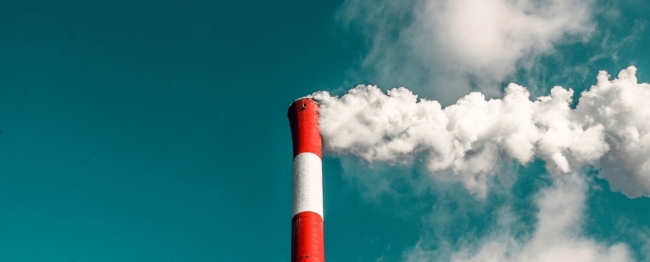Sowing Doubt and Undermining Science
Published 06-11-20
Submitted by University of Michigan: Erb Institute | Business for Sustainability

Originally published on erb.umich.edu
People want to rely on scientific evidence in countless different contexts. As one professor put it, “Science has ‘epistemic authority,’ meaning it is the best method humans have available to understand what is true about the world.” So science should be able to speak for itself. But people with a vested interest in undermining science are working behind the scenes to obscure it.
Scientific findings about climate change are a common target. To diminish the urgency of responding to climate change, government, corporate and other actors have found ways to discredit and silence scientists and their findings.
For example, the New York Times reported in March that an official at the Interior Department, Indur Goklany, inserted misleading language into at least nine of the agency’s scientific reports. This language asserted that there is a lack of consensus among scientists that the Earth is warming, and that increasing carbon dioxide offers benefits: “Warming and increased carbon dioxide may increase plant water use efficiency, lengthen the agricultural growing season. . . .”
As the New York Times explained, “Both assertions misrepresent the scientific consensus that, overall, climate change will result in severe disruptions to global agriculture and significant reductions in crop yields.”
The Trump administration has distorted or hidden science in other contexts, from removing information about climate change from several government reports and websites, to rejecting EPA scientists’ work linking trichloroethylene to fetal heart defects.
By diminishing the scientific findings of these government agencies’ own scientists, the people manipulating the science manage to craft an alternative narrative.
It’s no secret that corporate interests often want to promote such alternative narratives. It’s common for corporations to affect public policy through campaign contributions and lobbying. But they also do so through an approach that has been largely overlooked: intentionally creating doubt among policy-makers and the public about the need for policy action. Recent research from Thomas Lyon and Mireille Chiroleu-Assouline sheds light on the ways companies deploy strategies to create doubt. (See “Merchants of Doubt: Corporate Political Action When NGO Credibility Is Uncertain,” published in the Journal of Economics & Management Strategy.)
Policy-makers often rely on information from science-based nongovernmental organizations (NGOs) to help them make decisions. One way companies create doubt is by directly questioning the credibility of scientists and science-based NGOs, accusing them of a political bias that makes them untrustworthy. Another way is by funding think tanks to sow confusion, argue Lyon and Chiroleu-Assouline.
Think tanks have proliferated in the past 20 years, but their impact on policy has not received the study it deserves, Lyon and Chiroleu-Assouline say. Although some think tanks are serious research-based organizations staffed by scholars with strong credentials, others put forth a hazy mixture of facts and ideology. They present their own “experts,” often with weak credentials, who provide a set of alternative assertions that can easily confuse citizens and policy-makers.
In one particularly egregious example, ExxonMobil funded a TV ad created by the Competitive Enterprise Institute that presented gauzy scenes of nature and ended with the punch line: “CO2: they call it pollution, we call it life.”
Goklany, the DOI official, contributed to a Competitive Enterprise Institute film called “Policy Peril: Why Global Warming Policies Are More Dangerous Than Global Warming Itself.” The New York Times report noted that Goklany has also written papers for and participated in events hosted by other think tanks, including the Heartland Institute, that have spread doubt about climate change.
In 2017, the Heartland Institute reportedly sent more than 25,000 copies of its book “Why Scientists Disagree About Climate Change,” along with an accompanying DVD, to science teachers across the country. It planned to send more than 200,000 copies.
Such think tanks aim to influence people’s perceptions of climate change—from third graders to members of Congress. And a think tank’s political bias might be unclear.
Even though a think tank may be well known to lean in a certain political direction, the extent of that political bias may be difficult for policy-makers to discern, Lyon and Chiroleu-Assouline say. A think tank can obscure its political bias, in part through employing a mix of “fellows” and other employees that span the spectrum from moderate to extreme.
“Historical research has begun to reveal the concerted efforts of groups such as the Mont Pelerin Society, funded by wealthy corporate backers, to create a world-wide family of ‘free-market’ think tanks,” Lyon said. These groups conclude that government action is undesirable, “and they have real impact: Many politicians propose bills that come word-for-word from such groups,” he said.
The public can find out about this behind-the-scenes manipulation only when someone exposes it. With heightened scrutiny of the ways government officials are downplaying and erasing scientific findings, will think tanks be able to keep operating under the radar? If they come under closer scrutiny, corporations might think twice about exerting influence through them.
Click here to read and comment

University of Michigan: Erb Institute | Business for Sustainability
University of Michigan: Erb Institute | Business for Sustainability
x
More from University of Michigan: Erb Institute | Business for Sustainability

